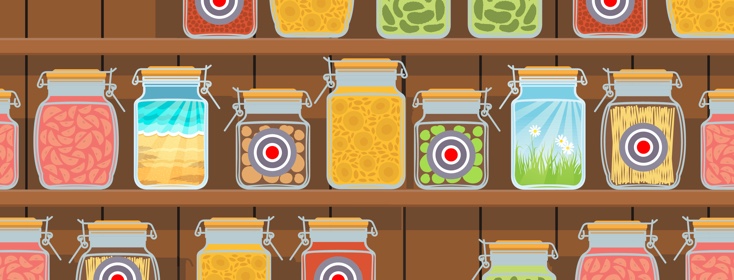Even If Stress Is A Trigger For IBS, It’s Not All In Your Head
When I was first diagnosed with IBS, I was told that I was causing my symptoms. That it was all in my head and if I stopped worrying so much it would go away. 25 years later and it hasn’t gone away.
But I don’t blame the doctor who told me that. I know he meant well. Back then, that’s just how IBS was understood. The medical community genuinely thought that IBS was associated with nervous tendencies and that the symptoms were caused by what was going on in your head.
So the doctor gave me an antispasmodic and told me to worry less. But things didn’t get better.
Was it all in my head?
Since my IBS did get worse at exam time – I was in university then – I believed the doctors who told me it was all caused by stress and worry. I sought out help for stress management, which mostly involved me being taken through guided meditations by a counselor. Sometimes things got better, but the symptoms would never go away completely. It left me thinking that I wasn’t trying hard enough and believing that my stress must be so much worse than I could possibly imagine.
Over the years I searched for other ways to destress and would regularly take meditation or stress management classes. I certainly felt relaxed, but the IBS symptoms remained. Still, I kept blaming myself for not working hard enough to sort out what was happening in my head.
I became anxious about stress and how it could upset my body, but I had no way to resolve it. My increasing anxiety fed my stress, which in turn fed my IBS and made it worse. Over time my gut got more sensitive and my symptoms could be set off within minutes of a stressful trigger, finally reaching the point where it took less than a minute for a full blown response. My gut would react faster than my brain, responding to a trigger before I even knew the trigger had happened.
In the background, the medical community were slowly gaining a better understanding of IBS, realizing that while there is a connection between the gut and the brain, and that mental stress can definitely trigger IBS, that IBS can be triggered by other things too and is definitely not all in the head. These days they know that food intolerances, gut irritants, physical activity and other lifestyle choices, along with stress, are all possible triggers for IBS.
That’s an awful lot of IBS triggers that aren’t starting from within your head.
Finally, over the last decade I’ve learned that I have a lot of food triggers, including FODMAPs and dairy, and that I need to avoid or limit certain gut irritants. I also learned that if I don’t exercise regularly, get enough sleep or keep my stress levels low, it’s more likely that my IBS will get set off.
And yes, stress is still an important trigger for me, so they were right about that. But it’s much less of a concern for me when my other IBS triggers are well managed.
These days I make major efforts to control my stress. Walking, running, qi gong, yoga, and other exercise, along with meditation and mindfulness, plus cognitive behavioral strategies, all play a role in my ongoing stress management. One strategy alone doesn’t work; I need a whole suite of them. But since learning how these strategies work best for me, I no longer require daily routines for them and can naturally include them in my day as feels best at the time. It’s been a process, but worth it.
So please don’t believe anyone who tells you that IBS is all in your head. It’s not.
While there may be a mental element caused by stress or anxiety, odds are there’s a lot more that’s triggering your IBS too.

Join the conversation